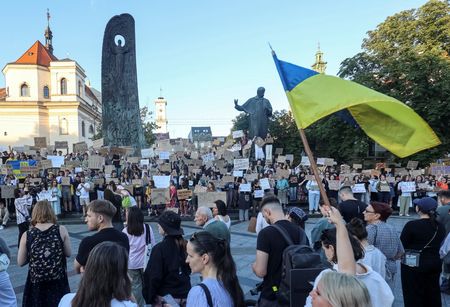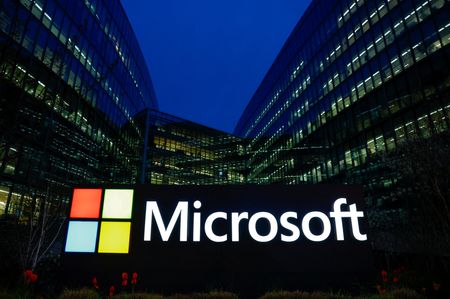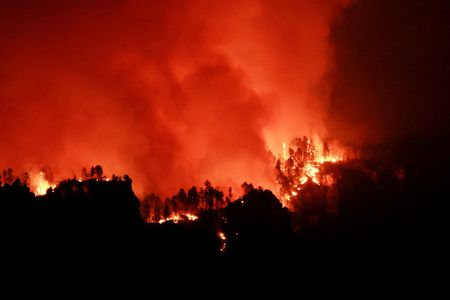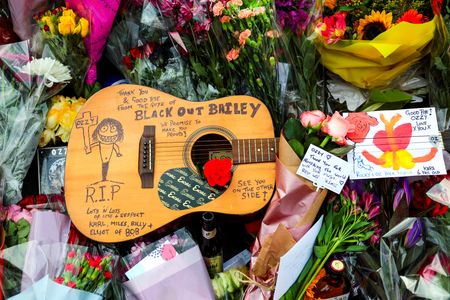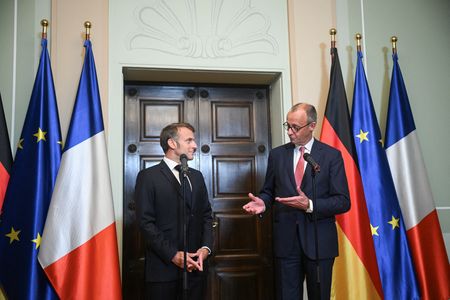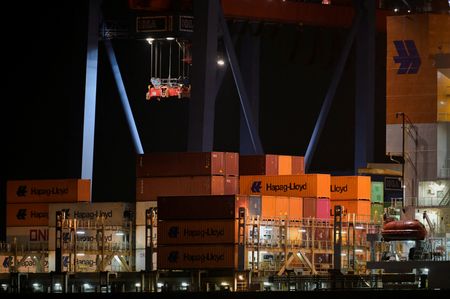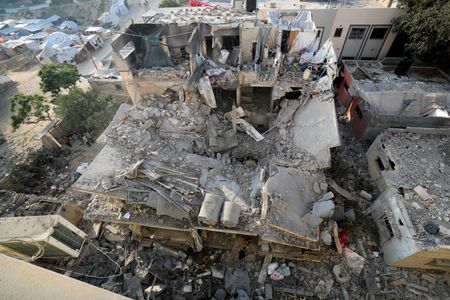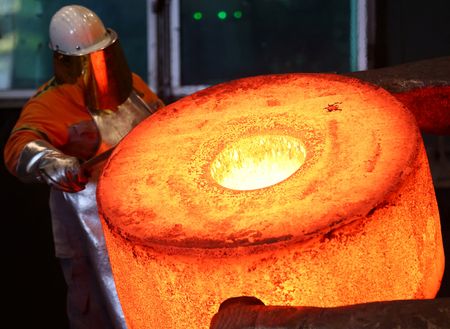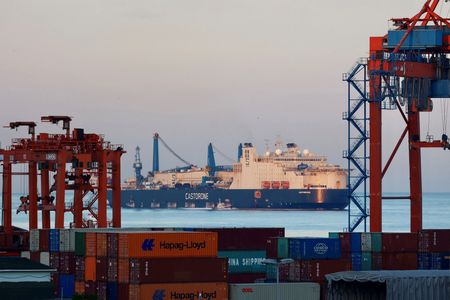By Olena Harmash and Anastasiia Malenko
KYIV (Reuters) -Ukraine’s President Volodymyr Zelenskiy promised a quick new plan on Wednesday to fight corruption, after a law curbing the independence of anti-graft agencies triggered the first street protests of the war and rare rebukes from European allies.
Opposition lawmakers and European officials called on Wednesday for Kyiv to reverse the law, which Zelenskiy signed overnight. It was rushed through parliament on Tuesday a day after the security services arrested two anti-corruption officials for suspected Russian ties.
In his nightly televised address, Zelenskiy said the corruption fighting agencies – an investigating agency known as NABU and a prosecutor’s office known as SAPO – would continue to function “but without any Russian influence”.
“It all must be cleansed,” he said.
In the morning, he met officials including both agencies’ heads and said he would unveil a new plan to fight corruption within two weeks.
“We hear society,” he wrote on Telegram. “We all have a common enemy – the Russian occupiers, and the protection of the Ukrainian state requires sufficient strength of the law enforcement and anti-corruption systems, and therefore a real sense of justice.”
In a joint statement later on Wednesday, NABU and SAPO said they wanted their independence restored through legislation.
STRONGEST CRITICISM OF THE WAR
The law prompted some of Ukraine’s European allies to deliver their strongest criticism of Zelenskiy’s government since Russia’s invasion in 2022. Thousands of people took to the streets in Kyiv and other large Ukrainian cities late on Tuesday to protest, the first such demonstrations of the war.
“This is complete nonsense from the President’s Office,” Solomiia Telishevska, 20, a student in Kyiv on holiday, told Reuters. “This contradicts what we are fighting for and what we are striving for, namely to (join) the European Union.”
The law’s critics say the government appears to be trying to rein in anti-corruption agencies to protect officials.
After decades of endemic corruption in Ukraine, cleaning up its government has been held up as the most important condition for the country to join the European Union, tap billions of dollars in foreign aid, and integrate more broadly with the West.
The issue risks antagonising Kyiv’s most loyal allies at a time when it is trying to smooth over the relationship with the administration of President Donald Trump, who has frequently criticised Zelenskiy.
German Foreign Minister Johann Wadephul said on X the new restrictions were “hampering Ukraine’s path to the EU.”
Benjamin Haddad, France’s European Affairs minister, said it was not too late to reverse the decision.
Yaroslav Zheleznyak, from Ukraine’s opposition Holos party, said that he and several other lawmakers would propose a bill “to overturn this big shame that was adopted and signed”, and also challenge the law in the Constitutional Court.
EUROPEAN DREAM
The law was passed a day after Kyiv’s SBU domestic security agency arrested one NABU official on suspicion of spying for Moscow and another suspected of illegal Russian business ties. It also conducted sweeping searches and arrests of a number of agency employees on other grounds, including traffic accidents.
NABU said that even if Russian infiltration was a problem, the crackdown had gone too far, making it impossible to carry out its mission.
Ukrainian political analysts said the legislation risked undermining society’s trust in Zelenskiy during a critical stage of the war against Russia.
Fierce fighting rages along more than 1,000 kilometres (621 miles) of the frontline. Russian troops continue their grinding advance in the east and have stepped up near daily attacks on Ukrainian cities with hundreds of drones.
The public’s European aspirations are vital to sustaining the war effort, said Valerii Pekar, a Kyiv-based analyst: “Only democracy and the European choice give us a chance to win,” he posted on Facebook.
(Reporting by Olena HarmashEditing by Peter Graff and Tomasz Janowski)

